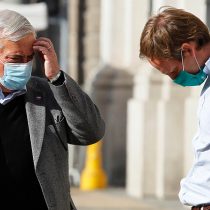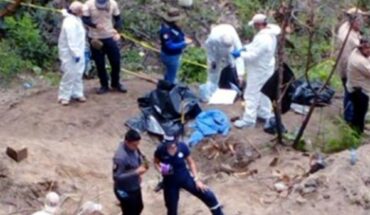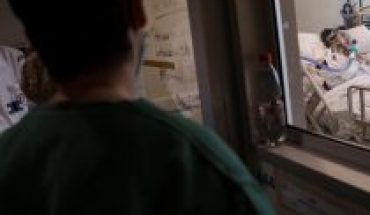
Centro de Convenciones Santiago S.A. better known as Espacio Riesco, and in the context of the pandemic, less known as Centro Hospitalario Huechuraba, will receive from the Ministry of Health $1.627 million according to the most recent resolution of the Contraloría General de la República, which ruled on a contract between the company and the Northern Metropolitan Health Service that initially amounted to $2.091 million.
However, the Contraloria ruled that the SSMN would have to pay $464 million less, after the supervisory body determined that only the benefits actually provided by the company should be paid and that the price proposal was drawn up in September 2020, i.e. long after March, the date on which the venue began operating in order to decongest traditional care facilities.
The Espacio Riesco case was one of the most controversial points of the management of commercial engineer Arturo Zuñiga, as undersecretary of Assistance Networks, mostly during the management of Jaime Mañalich at the head of the Minsal. First, the amount and choice of that specific question was questioned. The questioning then became suspicious when the Contralorie declared the contract for more than 2 billion illegal and the Northern Metropolitan Health Service had to specifically explain the benefits that were paid. It is in relation to this new calculation that the Contraloria is right in today’s two-page report.
The resolution once again put on the table the management of Arturo Zuñiga, who left the Minsal in November last year and today competes as a candidate for the Constituent Convention for District 9 in an UDI quota. As of February this year, the Contraloria published its examination of the health residence scheme managed by Zuñiga’s distribution. In that trace, the Contralorie determined that at least until June 2020 there was never clarity on the capacity available in health facilities. The report in this regard noted that “from the interviews and documentation analysed it was noted that there were confusions as to whether the availability was of beds or rooms by sanitary residences, as well as there was not always full knowledge of the free quotas. The background, referring to the number of beds per region, residences and availability, was handled manually by the SRA or by excel spreadsheets, which did not provide security on the completeness, integrity and preservation of background and information.”
In addition, the same February indegatory determined that the Minsal hired a hotel linked to Orlando Durán, head of the Minsal Primary Care Division. In addition, ghost guests were included inside that hotel. “Of the 94 individualized foreign guests, the list could verify, with the data provided by the Chilean Investigation Police, that in 56 cases the institution’s records accounted that the informed persons had left the country before the period in which they would have made use of the facilities of the Hotel Clínico SpA”, determined the investigation published in February
Zuñiga at the time defended himself by lowering the profile to the results of the investigation, ensuring that “what the Contraloria does is question administrative procedures, that there would be more control processes to avoid possible questions”. He further stated that “we have to contextualize that we are in a pandemic, there was no time to make bases that were the same for all” and finally complained about a “petty attitude” of the people who relieved the importance of the report, since that called into question the work of 160,000 people in the undersecretariat.
In any case, the example of health management was set by parliamentarians and other social actors who questioned the extension of the State of Emergency, by requiring fewer administrative measures and thus opening the way for practices that unso match corruption.





